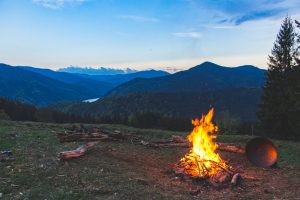
By Lauren McDermott
There’s nothing better than sitting next to a blazing campfire while you melt s’mores and roast hot dogs with friends on a cool evening. Camping provides a look inside all that nature has to offer and a blazing fire keeps you warm on brisk nights. Although campfires are enjoyable, they can also have a negative environmental impact.
Knowing how your fire is impacting the environment is important for any camper so that you can take steps to minimize your impact. Campfires emit smoke, pollutants, and greenhouse gasses that are detrimental to the environment. While you might not think that your small fire is making a difference in the world, your actions are directly affecting the environment, animals, and even plants that are around you.
If you have a campfire that you plan on lighting up this spring and summer, make sure that you are aware of how to reduce its impact on yourself, others, and the natural world. Use the following tips to reduce the environmental impact of your campfire, and don’t forget to always put out your fire when you’re done, so that the campground will be around for others to enjoy.
1. Try an Eco Fuel
Believe it or not, wood smoke may be worse for your health than you realize. We all love the smell of a smoky fire. However, research has found that the scent of burning wood can increase the number of air pollutants in your body and the environment. Burning wood emits particulates matter and greenhouse gasses, which negatively affect nature as well.
A good alternative to wood-burning is burning eco fuels. Eco fuels like recycled wood logs or coffee ground logs burn at a hotter temperature and require less fuel to build a good-sized fire. They also create cleaner-burning fire, minimizing your impact on the natural world around you. Eco fuels release less smoke and pollutants that harm the atmosphere and your lungs — it’s a win-win.
2. Only Burn Seasoned Wood
Instead of grabbing any old logs for your campfire, stop to consider the benefits of burning seasoned wood. The key difference between unseasoned and seasoned wood is the moisture content and this causes differences in the weight of the logs and how they split. Seasoned firewood is lighter, drier, and results in a cleaner burn.
The more moisture that wood has in it, the more smoke it will produce. Because seasoned wood is drier and has a low amount of moisture in each log, it creates less smoke for you to breathe in and fewer emissions. They also produce fewer carcinogens than burning unseasoned would. Whether you’re having a bonfire or campfire, you want to make sure that you choose seasoned logs for fuel.
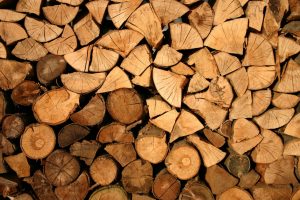
3. Burn Less Wood
Every time you burn wood, it releases some amount of greenhouse gasses and pollutants. While you may want to warm your camping buddies up with a toasty fire when the nights get cold, try to burn only what you need to. The fewer logs you burn, the fewer emissions are let out into the atmosphere.
Keep an eye on your fire and give it time to increase in height and size before adding more logs to it. Fires grow gradually and you may build one that’s too big if you start with lots of fuel. Don’t forget to add logs carefully, as they may cause your fire to flare up and potentially burn any bystanders. Always keep watch over your fire so your outdoor adventure runs smoothly and the environmental impact is minimal.
4. Maintain a Consistent High Heat
Keeping the heat at a consistent temperature will allow toxins to successfully break down into safer materials. In other words, a fire that burns at a low temperature won’t actually break down harmful toxins and will instead release them into the air. When burning wood in your campfire, you want to make sure that the temperature remains consistently hot.
It can be dangerous to engage with a fire that is very hot, so be careful not to get burned if adding or adjusting logs. Remember to also keep a watchful eye on any pets or children you might have with you to prevent any accidents or burns. By keeping the flames steady and hot, you can reduce the fire’s impact on the atmosphere.
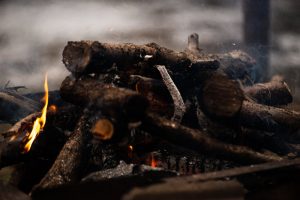
5. Let the Fire Burn Down
Once you have finished enjoying your fire, let the fire burn down on its own. If you let a fire burn down first, there will be fewer flames to extinguish later. A good rule of thumb is to wait anywhere from 30-45 minutes for the fire to diminish before you try to put it out.
Once the fire has gotten smaller, clear away stray ashes with a shovel or stick to allow the fire to burn down more easily. You can then put your fire out with water or a mixture of sand and dirt. When extinguishing a campfire, give yourself enough time to ensure it’s thoroughly put out. Listen for any hissing sounds and look for glowing embers and continue to add dirt or water until they disappear.
After you’ve successfully extinguished your fire, check the area and any nearby objects for stray ashes or embers that have fallen from your fire. Put them out if you find any so you don’t cause an accidental fire at the campground or even worse, a wildfire. Even though certain logs or pieces of ash may not be glowing red, they could still be scorching hot, so proceed with caution during this process.
Whether you’re traveling to a new camping destination or you’re ready to light a fire at your favorite campground, it’s important to leave a minimal impact on your camping environment. Think about limiting the effect your campfire has on the Earth, and use these tips to reduce your environmental impact all while enjoying a campfire safely.
From trying out eco fuels as a greener alternative to using less fuel in your fire, these are easy ways to leave less of a footprint on the natural world while camping. For more ways to reduce the environmental impact of your firepit and fire safety tips for your health and the environment, check out this image courtesy of The Zebra.
Have you thought about your environmental impact when camping?
Do let us know your thoughts in the comments below.

Lauren McDermott
Lauren McDermott is a health and wellness writer who aims to inspire others through business writing. She recently graduated from Bucknell University with a BA in English, and Creative Writing and is passionate about editorial, blogging, and spending time with loved ones.




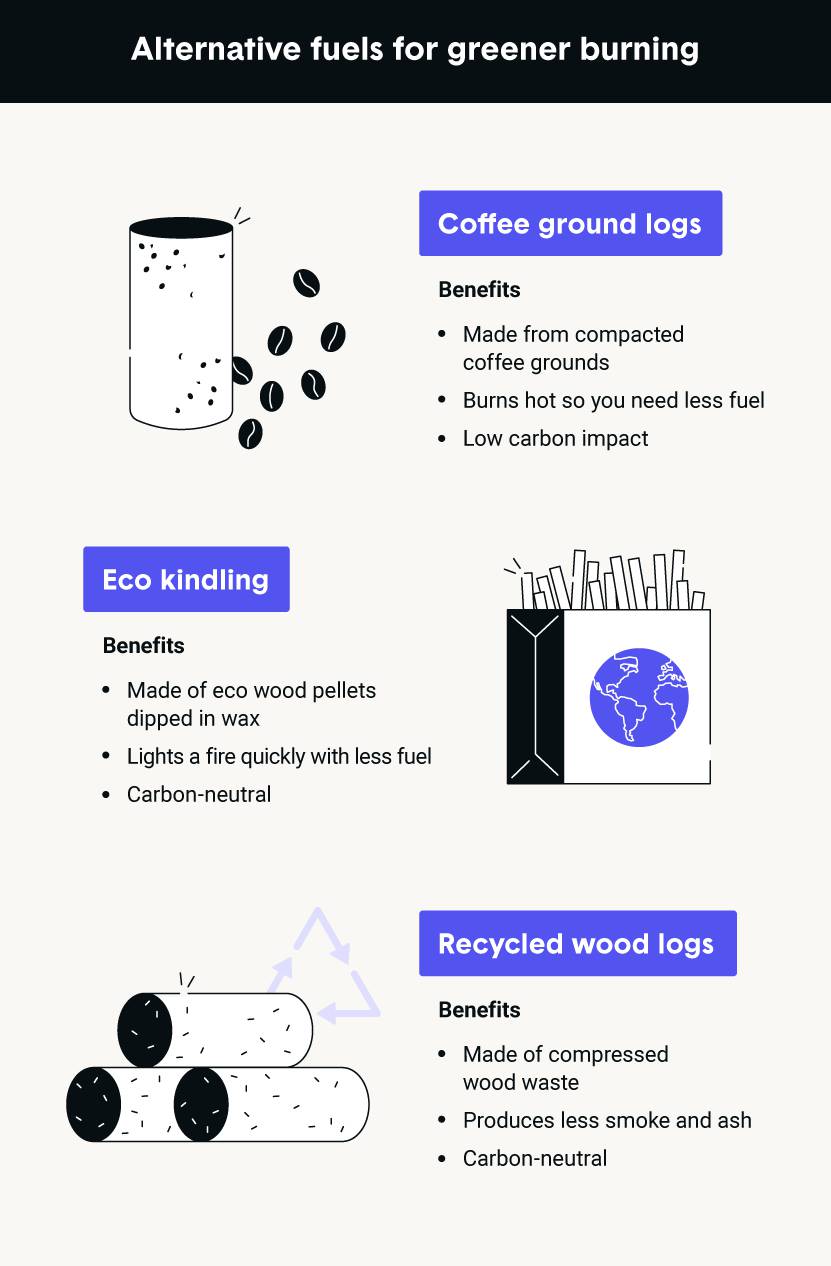
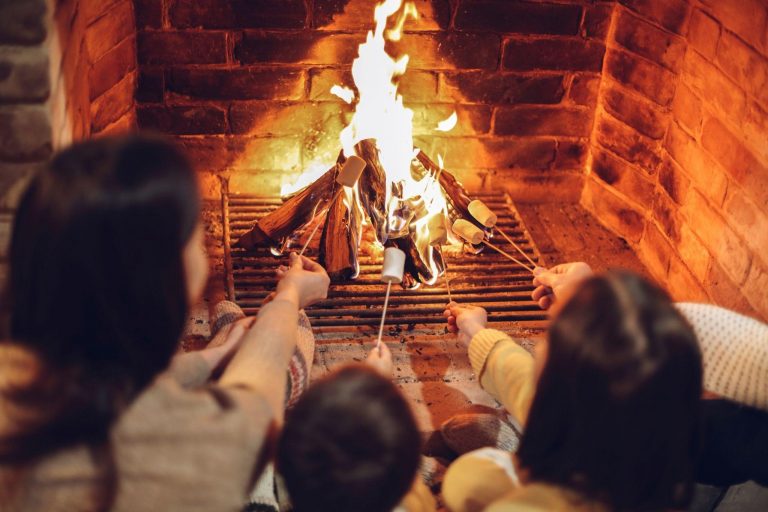
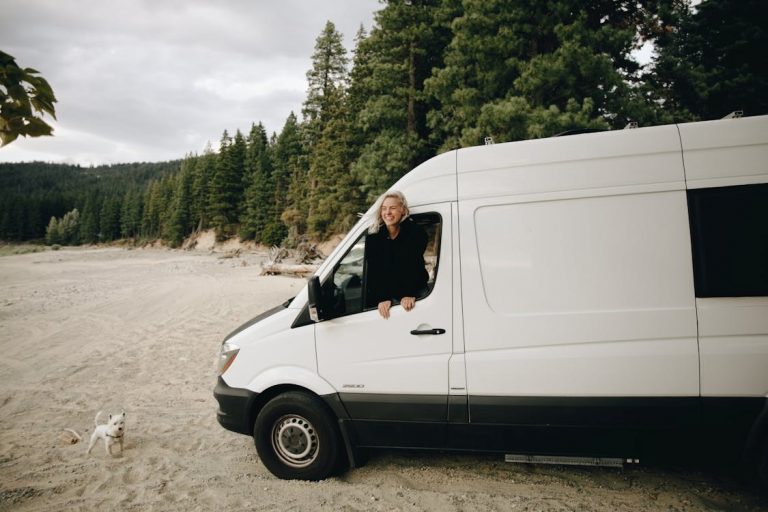
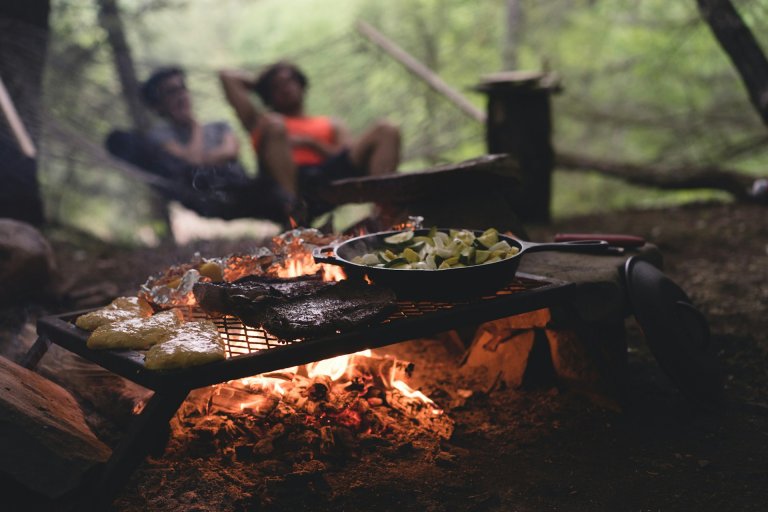
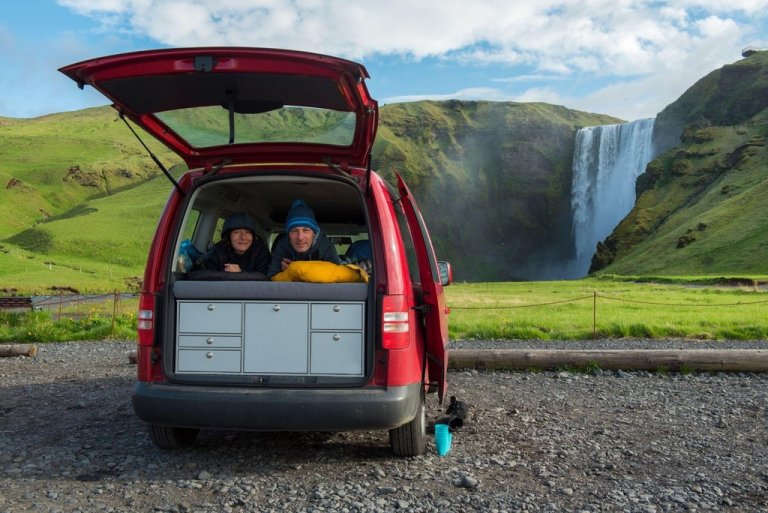



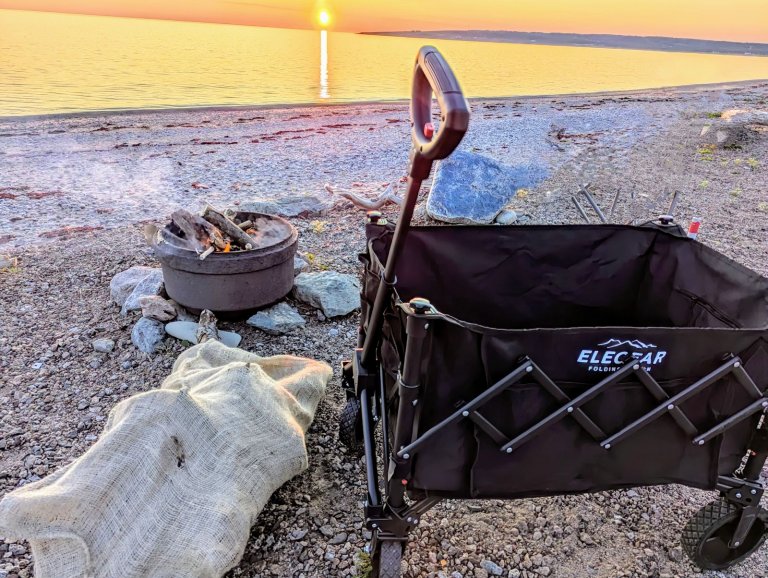
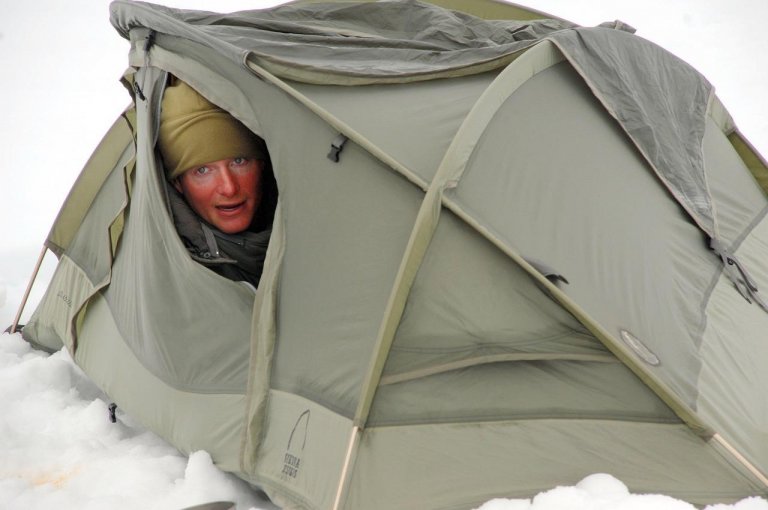

Leave a Reply